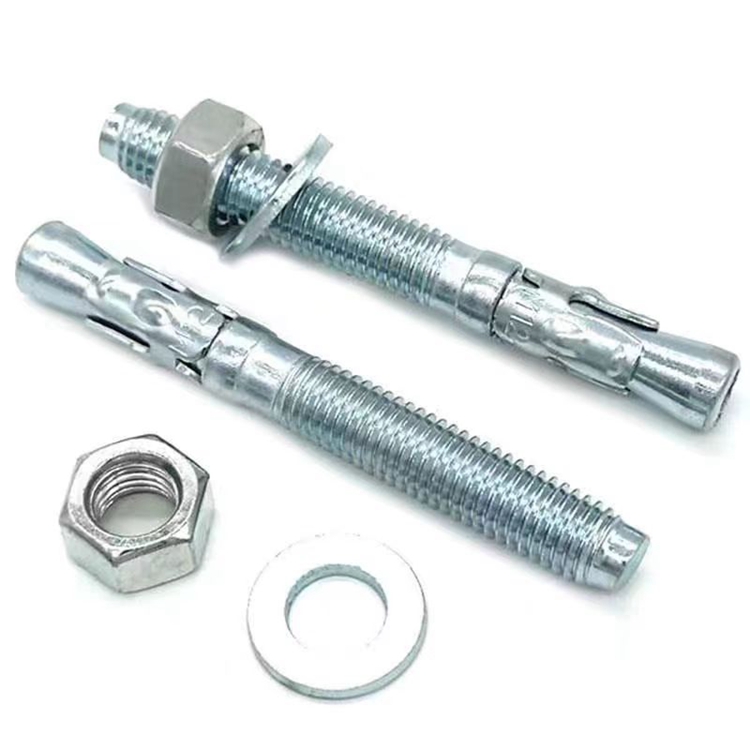Suppliers of Self-Drilling Screws for Wafer Head Applications
Dec . 13, 2024 20:10 Back to list
Suppliers of Self-Drilling Screws for Wafer Head Applications
Understanding Wafer Head Self-Drilling Screws An Insight into Suppliers and Applications
In the realm of construction, manufacturing, and assembly, fastening solutions play a pivotal role in ensuring structural integrity and reliability. Among the many fastening options available, wafer head self-drilling screws have gained considerable attention due to their efficiency and versatility. This article delves into wafer head self-drilling screws, highlighting their characteristics, applications, and the role of suppliers in providing these essential components.
What are Wafer Head Self-Drilling Screws?
Wafer head self-drilling screws are specialized fasteners designed to eliminate the need for pre-drilling holes, which can save time and reduce labor costs. The key characteristic of these screws is their unique head design and cutting tip. The wafer head features a flat bearing surface and a wide diameter, enabling it to distribute load effectively over a larger area compared to traditional screw heads. This helps prevent damage to the material being fastened, particularly in applications involving softer substrates.
The self-drilling tip is another significant feature, engineered to penetrate various materials, including metal, wood, and plastic, without the need for pre-drilling. This is particularly advantageous in projects requiring numerous fastenings, as it streamlines the assembly process.
Versatile Applications
Wafer head self-drilling screws are used in a broad spectrum of applications across multiple industries
. Common uses include1. Metal Fabrication In metalworking, these screws are often employed to fasten sheets of metal or attach components to frameworks, providing a robust connection that can withstand various forces and loads.
2. Roofing and Siding The construction industry frequently utilizes wafer head self-drilling screws for roofing installations and exterior cladding projects, where quick assembly is crucial, and weather-resistant properties are required.
3. Wood and Composite Materials These screws are effective for joining wooden structures, particularly where quick installation is necessary. Their design minimizes the risk of splitting wood and provides a secure fastening.
wafer head self drilling screws suppliers

4. Automotive Industry Self-drilling screws are used in assembling various components within vehicles, where precision and reliability are paramount.
The Role of Suppliers
The supply chain for wafer head self-drilling screws is vital for ensuring that manufacturers and builders have access to high-quality fasteners suitable for specific applications. Suppliers vary from large multinational corporations to specialized local businesses, each offering different advantages.
1. Quality Assurance Reputable suppliers prioritize quality control, ensuring that their screws meet industry standards for performance and durability. This is critical in applications where failure can lead to significant safety hazards.
2. Variety Suppliers often provide a range of options, including different materials (such as stainless steel, carbon steel, and coated variations), sizes, and thread types. This variety allows customers to choose the most suitable fastener for their specific needs.
3. Expert Advice Many suppliers offer expert guidance, helping customers understand the best products for their application. This can include recommendations on screw types, installation methods, and compatibility with other materials.
4. Logistical Support Efficient suppliers understand the importance of timely delivery and stock availability. They often maintain significant inventories and provide logistical support to ensure that customers receive their orders promptly.
Conclusion
Wafer head self-drilling screws represent a crucial element in modern construction and manufacturing, offering unique benefits through their design and functionality. With a wide range of applications across various industries, the demand for these fasteners is steadily increasing. As such, the role of suppliers becomes increasingly important, ensuring that quality, variety, and support are readily available. By fostering strong relationships between suppliers and customers, the construction and manufacturing sectors can continue to thrive, promoting efficiency and innovation in all projects undertaken.
Latest news
-
High-Quality Panel Stud Bolt Reliable Panel Stud Bolt Factory & Suppliers
NewsJul.08,2025
-
High-Precision Fine Thread Locknuts Manufacturer & Supplier Custom Solutions
NewsJul.08,2025
-
PH Imperial Stud Bolt – High Strength Fasteners from Leading Supplier & Factory
NewsJul.07,2025
-
High-Quality Allen Wrench Bolts Leading Factory, Company & Suppliers
NewsJul.07,2025
-
Wholesale Ball Stud Bolt - High Quality Supplier & Factory Price Reliable Wholesale Ball Stud Bolt Company
NewsJul.06,2025
-
High-Strength Alloy Bolts Manufacturer & Supplier Quality Alloy Fasteners Factory
NewsJul.06,2025
